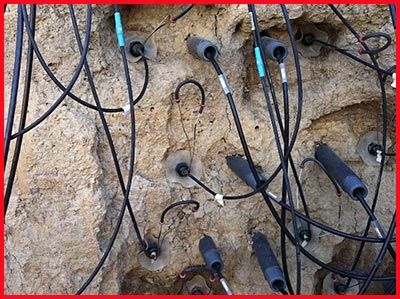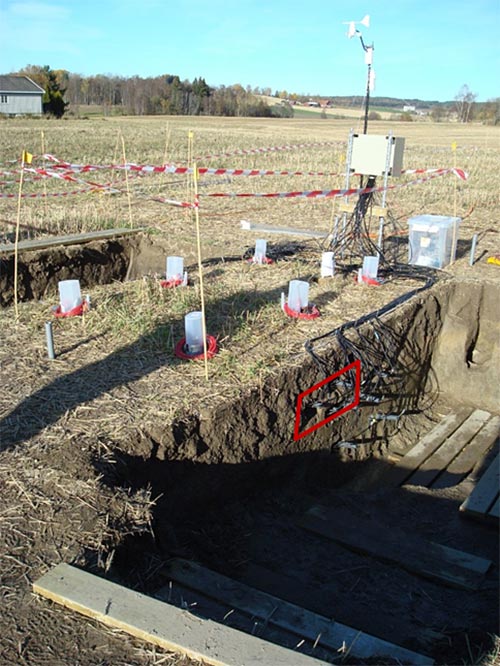Climate change is already having adverse effects on agriculture. While air temperature and precipitation are intensely monitored, modeled, and predicted, changes in soil conditions have received less attention. With recognition of the effects of increased CO2 in the atmosphere and more variable and intense weather, it bears keeping in mind that changes are occurring underground as well, changes that could have strong effects on the agro-ecosystems and crop production.
Plans are being developed for the purchase and installation of soil monitoring equipment and sensors on a permanent plot at Horticultural Farm III on Rutgers' Cook Campus. Water movement, soil temperature, gas exchange between soil and atmosphere, and nutrient cycling will be tracked, along with continuous data from existing weather stations at each site. Soil will be sampled periodically to monitor trends in chemical and biological properties.
In addition to its research significance for assessing climate change impacts, these observatories will be a great asset for graduate and undergraduate education. Subsequent instrumentation of additional long-term set-aside plots at other NJAES farms throughout New Jersey will follow to observe differences due to longitude, latitude, and soil type.

Figure 1 Detail: Sensors for soil temperature, soil water content and potential, gas exchange, and other properties are positioned at various depths within the soil profile.

Figure 1: Example of installation of soil monitoring sensors for long-term data collection.

